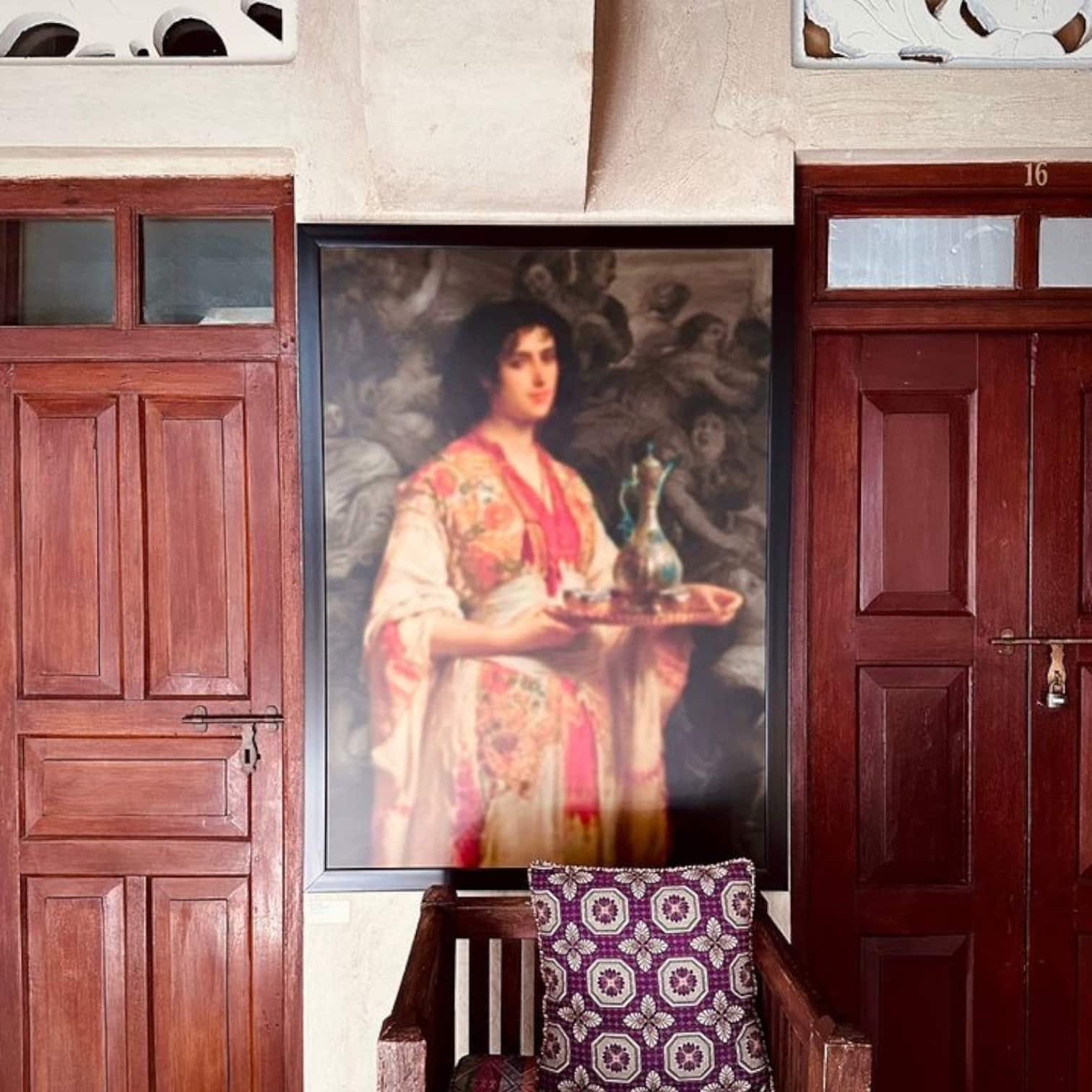The fashion industry is transforming, and sustainability is a topmost priority! More people are talking about ethical practices, environmental conservation, and social responsibility and consumers are asking questions too. We are the biggest cheerleaders for Sustainable Fashion and we could not help but talk about the Top 15 Champion Women in Sustainable Fashion! Check out our curated list below.
Stella McCartney
Stella McCartney has been leading in Sustainable fashion since early on. Her commitment to cruelty-free and sustainable practices has set a benchmark for other brands to follow. Stella’s brand emphasizes the use of re-engineered cashmere, ethically sourced wool, organic cotton, recycled textiles, and 100% PVC-free materials. Her sustainable packaging initiatives and regular audits to measure impact further demonstrate her dedication to the environment.
One of their top collaborations has been with Bolt Threads where they collectively worked on producing Spider Silk. This monumental garment made entirely of a biomaterial inspired by spider silk is in the exhibit at MoMA.
Stella says “There is no compromise when it comes to sustainability, and pushing boundaries is always at the forefront of the brand’s mission.”
Heather Williams
Heather Williams, the founder of Sourcing Playground, has created a B2B platform that connects fashion brands with sustainable manufacturers. Her mission is to reduce the harmful impact of the fashion industry. By facilitating connections with verified sustainable manufacturers, Sourcing Playground helps brands reduce wastage and chemical costs, promoting responsible sourcing decisions. Heather’s innovative platform is transforming the way brands approach sourcing, making it easier for them to adopt sustainable practices and contribute to a greener fashion industry.
Stephanie Benedetto
Stephanie Benedetto’s Queen of Raw is an online marketplace that focuses on buying and selling deadstock fabric. Her vision is to reduce the fashion industry’s harmful impacts. Utilizing old fabrics to create beautiful garments with minimal waste and toxins, Queen of Raw is a testament to sustainable innovation. Stephanie’s efforts are not only conserving resources but also reviving the legacy of her family’s century-old fashion and textile business. “If we don’t make a change to the fashion industry now, in just a few years, two-thirds of the world’s population will face shortages of fresh water,” says Stephanie.
Eileen Fisher
If you are even remotely connected with Sustainable Fashion, you must have heard of Eileen Fisher. Eileen Fisher’s passion for disrupting the traditional linear production model has led to the creation of luxurious and sustainable womenswear. Eileen emphasizes the use of recycled fabrics, organic fibres, and natural dyes. Her initiatives like Renew and Waste No More are pioneering examples of circular fashion. Eileen Fisher’s brand is a certified B Corp, and her commitment to inclusive sizing, environmental conservation, and women empowerment sets a high standard for the industry.
Your content goes here. Edit or remove this text inline or in the module Content settings. You can also style every aspect of this content in the module Design settings and even apply custom CSS to this text in the module Advanced settings.
Mara Hoffman
Mara Hoffman’s collections are a celebration of colour and sustainability. Her luxury designs are a testament to mindful consumption. Mara employs sustainable fabrics like ECONYL®, REPREVE®, hemp, organic cotton, and linen. Her ethical sourcing and innovative use of materials are reshaping the industry.
Mara’s approach to fashion production is influencing other designers to adopt alternative methods, contributing to a more sustainable and vibrant fashion landscape.
Gabriela Hearst
Gabriela Hearst’s brand is a beautiful blend of tradition and sustainability. Her focus on well-made, long-lasting pieces is a refreshing departure from fast fashion. Gabriela uses deadstock and recycled materials, plastic-free packaging, and wool from her family-owned Merino sheep farm. Her partnerships with non-profits and commitment to carbon neutrality are commendable.
She says, “I like the idea that we’re doing our part by not creating something completely new.”
Fe Noel
Fe Noel’s womenswear brand is a fusion of tropical colours, bold prints, and sustainability. Her handcrafted designs are a breath of fresh air in the fashion world. Fe’s commitment to handcrafting, made-to-measure options, and support for underserved youth through the Fe Noel Foundation is inspiring.
Fe Noel’s approach to design and social responsibility is a beacon for emerging designers looking to make a positive impact on a global scale.
Lucy Greenwood
Lucy Greenwood co-founded Lucy & Yak, a dungarees fashion brand that prioritizes ethical and sustainable manufacturing. Lucy & Yak’s use of organic fabrics, recycled packaging, and commitment to fair living wages reflect a holistic approach to sustainability. Lucy’s grassroots approach to building a solid fashion business is a model for aspiring entrepreneurs seeking to balance ethics, sustainability, and success.
They state “Start small. Once you achieve a tiny little easy target, the next ones just happen without you doing anything.”
Roopa Pemmaraju
Roopa Pemmaraju’s style is a fusion of floral, feminine, and summer-chic. Her designs are drafted in New York and sustainably made by artisans in India. Roopa’s brand emphasizes fair trade, low-waste practices, and the use of recycled or natural fabrics like cotton, corn fibres, eucalyptus, and silk. Her commitment to preserving India’s cultural traditions while embracing modern design is a refreshing take on sustainable fashion.
Safia Minney
To talk about Sustainable fashion and not mention Safia would be a sin. Safia Minney is the founder of People Tree, a leading fair trade and environmentally sustainable fashion brand. Safia’s commitment to organic farming, environmentally responsible production, and fair labour practices has set a high standard in the industry. Her work has been instrumental in bringing fair trade fashion to the mainstream, influencing both consumers and industry leaders.
Livia Firth
Livia Firth is the co-founder and creative director of Eco-Age, a sustainability and communications consultancy. She’s also known for the Green Carpet Challenge, promoting ethical and sustainable fashion. Livia’s work focuses on promoting ethical sourcing, reducing waste, and supporting sustainable fashion initiatives. Her advocacy and influence in the fashion industry have brought attention to the importance of ethical practices and sustainable development.
Elizabeth L. Cline
Elizabeth L. Cline is a journalist, author, and expert in consumer culture, fast fashion, sustainability, and labour rights. Through her writing and speaking engagements, Elizabeth educates the public about the environmental and social impacts of fast fashion. Her book “Overdressed: The Shockingly High Cost of Cheap Fashion” has been a catalyst for change, inspiring readers to think critically about their consumption habits.
Claire Bergkamp
Claire Bergkamp is the CEO of Textile Exchange, an organization that drives industry transformation in preferred fibres, integrity, and standards. Claire’s leadership focuses on promoting sustainable practices across the textile value chain, from farmers to consumers. Her work with Textile Exchange has been instrumental in setting industry standards and encouraging collaboration for more sustainable textile industry.
Dr Amanda Parkes
Dr Amanda Parkes is the chief innovation officer at Pangaia, a materials science company focused on sustainability in fashion. Amanda’s work includes the development of innovative materials and technologies that reduce waste and environmental impact. Her expertise in fashion technology and sustainable materials is paving the way for new solutions in the industry.
Josephine Philips
Last, but not least by any means, Josephine Philips is the founder & CEO of Sojo, a platform that connects consumers with local seamsters to make clothing alterations and repairs. Sojo promotes a circular economy by making it easy for consumers to repair and reuse clothing, reducing waste.
Josephine’s innovative approach is changing the way people think about clothing repair, encouraging a more sustainable relationship with fashion.
These champions of sustainability in fashion are not merely trendsetters; they are visionaries leading a movement towards a more responsible and compassionate industry. Their innovative practices, commitment to ethics, and passion for the environment are setting new standards and inspiring others to follow suit. They are true champions of sustainability, leading by example and driving meaningful change in an industry often criticized for its environmental impact.





